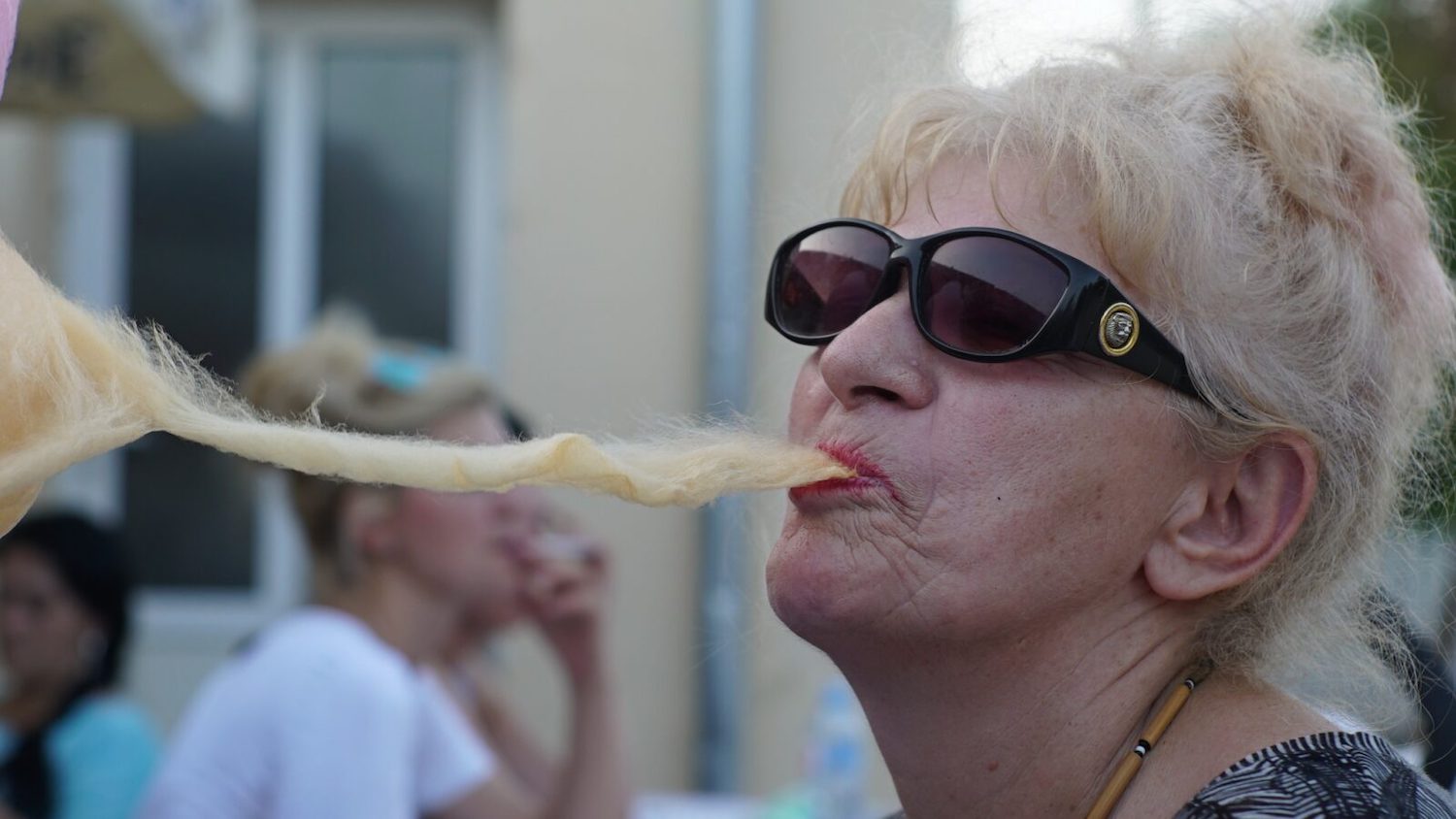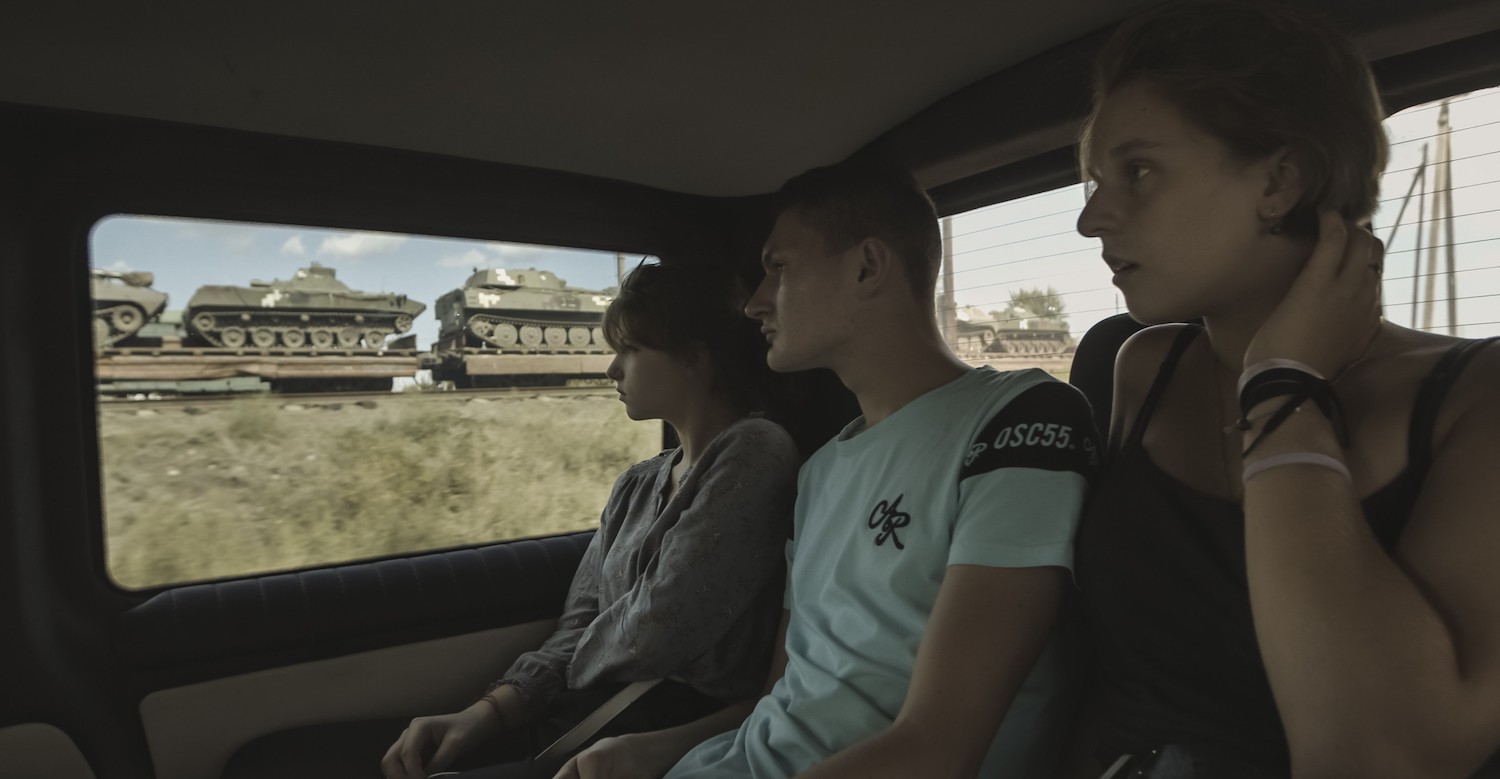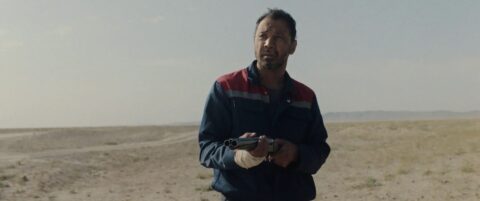High above Wiesbaden, perched on the Neroberg, is the Russian Orthodox church — a little slice of Moscow tucked away in a sleepy corner of Germany. I made the short hike up the hill to observe the marvellous frescos, marble flooring and various icons, as well as survey the city from up high. Like many grand buildings, it’s a monument to a man’s wife, built by Duke Adolf of Nassau after the love of his life, Elizabeth Mikhailovna, died in childbirth. It serves as a clunky metaphor for the festival as a whole. Russia looms over the whole thing.
This is far from the only Russia-Wiesbaden connection. Down in the city is the Kurhaus Wiesbaden, home of the Grand Casino. It is here that Fyodor Dostoyevsky devised his terrible method of successfully gambling on roulette (a perhaps mathematically impossible task), and almost bankrupted himself. In the end, he managed to rustle up some cash by writing a book about it: The Gambler, an excellent read and far from a minor work. This book in turn inspired James Toback’s The Gambler (1974) and Rupert Wyatt’s lesser-yet-still-enjoyable 2014 remake.

The building itself boasts a similarly holy interior to the Orthodox Church, only God has been replaced by money. Several lads were sauntering in and out, told that the casino doesn’t open for another hour. Wedding couples posed for pictures outside, a strange yet satisfying incongruity. As unless you are in an extremely wealthy place — say Cannes, Monaco or Locarno, places where no one cares if they win or lose — casinos represent some of the most depressing, soul-sucking places on earth. Yet the grandest ones are dressed up in immense glamour and glory, expertly hiding their aim to extract all your wealth.
Thankfully for Wiesbaden, the surrounding area — neatly arranged parks, fancy cafes, smartly dressed people out and about on a beautiful Saturday — is anything but miserable. Especially when you compare it to the three excellently-rendered locales in the three films I saw today.
The Spirit of Leone on the Kazakh Steppes
Talking of religion, acclaimed Kazakh auteur Adilkhan Yerzhanov imbues the Western with an Islamic feeling in Competition entry Goliath (2022, feature and above). Set entirely on the desert plains of his home country, this is a film that understands the Western inside and out. But instead of merely paying homage to what most characterise as an inherently American genre, Yerzhanov combines the corruptive elements of post-Soviet lands with the conflicting teachings of Islam to create something truly fresh.
With 14 features in just 13 years, Yerzhanov is a highly prolific director at the forefront of Kazakh cinema. I’d only seen The Gentle Indifference of the World (2018) before, so I had assumed that Goliath would have a similar kooky, offbeat comedy charm. Instead, right from the opening images, we are plunged into a dark, murky world, where everything is run by the charismatic yet deadly gangster Poshaev (Daniyar Alshinov).
In a demonstrative scene, heightened by Alshinov nonchalantly waving an AK-47 around, he explains that he is the government, the army and the police all in one; providing and protecting the people in the local village. But if anyone crosses his path — evidenced in an excellent opening sequence — his revenge will be swift and merciless.
The film is anchored by a key Machiavelli quote: “If an injury is to be inflicted on an enemy, it is to be so severe, that the enemy’s retaliation need not be feared.” He forgets this key rule after killing Arzu’s (Berik Aytzhanov) wife, assuming that his mental deficiencies mean that he is incapable of revenge. It becomes quickly obvious that Arzu will have a chance to strike back. It’s his long-winded manner of doing so that makes this such a pleasurable watch.
This all takes place in a lawless, post-Soviet world, with Russian rule replaced by gangs. Corruption is rife, kickbacks are a given, the police are all in on the game. Yet the gangsters all preach and adhere to Islam, praying in the desert and quoting from the Koran. Contradictory teachings say to both turn the other cheek and that in some cases, revenge is justified. Like every other religion, it’s all down to personal interpretation.
There are many moments that Sergei Leone himself would be proud of. Stand-offs that last forever. Men enjoying their last cigarettes just before they are shot in the head. The muddled relationship between honour and violence. Expertly rendered sieges on houses in the middle of nowhere. But Yerzhanov knows better than to replicate clichéd shots such as the extreme close-up or to use outdated Morricone-esque music. Instead, the widescreen cinematography keeps characters in the middle ground, creating a sense of spontaneity, while the synth soundtrack adds a touch of sublimity.
I recently saw people on Twitter offering their views on who should take on the seemingly un-filmable Blood Meridian. I say we give Yerzhanov a go. He certainly understands desperation and human depravity.

The Forgotten Town Sold off to The Chinese
Capitalism abhors a vacuum. While the Serbian government has no interest in an ore mine in the Eastern Serbian town of Majdanpek, the Chinese are certainly willing to move in. Once a booming town with jobs for everyone, its people have been severely let down by the government and the unions, still paying the mortgage on flats they claim were bought for the price of a pack of cigarettes.
Directing duo Eluned Zoë Aiano and Alesandra Tatić follow the residents of this town as they adapt to this news and campaign for their rights in the excellent Competition entry Flotacija (2023, above), both an excellent evocation of the harmful effects of extractive capitalism and a lovely fly-on-the-wall documentary about the resilience of Majdanpek’s residents, who may grumble and complain about being left behind, but certainly know how to laugh and joke and have a good time regardless.
The city is certainly rough and ready, but it has a compelling mystery and charm. We start with ex-miner Dragan Markovic stalking the nearby forests, setting small fires inside trees to ward dragons away. He says that you can spot dragon blood on the trees, and that dragons must be purged for the good of the people. He is the last in the line of dragon hunters. We assume the Chinese will not carry on this tradition.
His sister Desa is the widow of a union leader; she is simultaneously the beating heart of the project and its joker, as quick with a lament as she is with a joke. While there are many naturalist elements throughout this documentary, Desa has an almost maternal relationship with the two young female filmmakers, telling them where to film and what to focus on. She’s joined by her own children, unable to find work in a town abandoned by Vučić and his fellow cronies.
Although the Chinese loom large over the film, we never meet any of them in the film, the focus entirely on the Serbs themselves. This is a smart choice, as the guest workers would presumably be just as happy to work in Djibouti or the UK as this remote part of the Balkans. Immersing us into the lives of these people, their hopes and their wishes, this is a remarkably empathetic and enjoyable documentary that never loses sight of its humanity in pursuit of the bigger, more troublesome picture.

Living on the Edge of Annihilation
Competition entry We Will Not Fade Away (Alisa Kovalenko, 2023, above) also features a downtrodden town, yet the threats involved are far more existential. Set in the Donbass region, this acutely-observed coming-of-age film — previously playing in the Generation section of the Berlinale — surveys the difficulties of growing up in a place ravaged by war.
Shot in 2019, before Russia launched a full-scale invasion, Kovalenko follows a group of children — both Russian and Ukrainian-speaking — in the desolate Stanytsia as they think about their future. Any possibility of a life ahead is somewhat undermined however by the lack of prospects in the region. For these kids, life began again in 2014; moving on from that point is impossible. They have an opportunity to drastically broaden their horizons when Valentyn Shcherbachov, a famous hockey commentator and adventurer, chooses to sponsor these children on a once-in-a-lifetime trip to the Himalayas.
Considering the natural beauty of Nepal — its vast peaks, wildflowers and world-beating sunrise — there is immense emotional power in how it contrasts with their hometown; the peacefulness of the region providing an extraordinary counterpoint to the constant hum of gun and mortar fire in Donbass.
“What if this is all a dream?” asks one boy as they start their descent back from the Annapurna base camp. In fact, he was returning to a nightmare. Contact with all the boys in this film has been lost following the invasion. The cumulative knowledge that their dreams crumbled into dust is undeniably moving.
But a large part of the emotional effect is undone by the musical choices, featuring cheesy songs that might work well on reality TV shows but seem just a little too on the nose for a serious documentary. While the use of montage is inspired — enlivening what would otherwise be a classic fly-on-the-wall generation movie — the music unnecessarily tips proceedings into cringe territory. This type of subject matter simply doesn’t need much adornment.
—
And I am out. Having tasted some more Apfelwein during a quick stopover in Frankfurt, and being billed an insanely reasonable amount for the pleasure, I’m certainly willing to reconsider my thoughts on the city. In fact, I hope to return again, perhaps next year. Let’s see what happens next.
Enjoyed these dispatches? Feel free to subscribe to the newsletter!
Redmond is the editor-in-chief of Journey Into Cinema.




